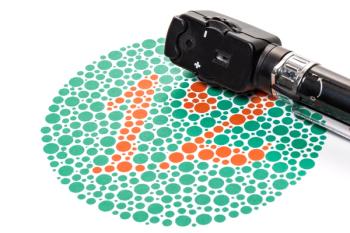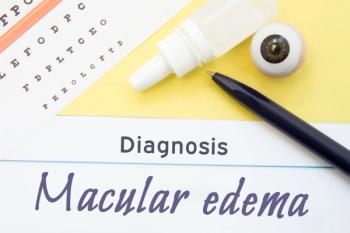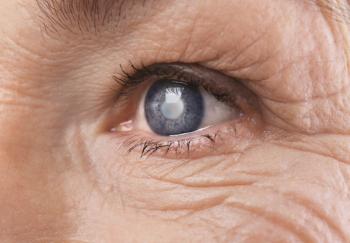
Assessing the Aging Eye and the Risk of Dementia
Older patients who had cataract surgery had almost a 30% lower risk of developing dementia compared with those who did not, a recent analysis finds.
Removing cataracts is associated with lower risk of developing dementia among older adults, according to the findings of a study recently
Sensory loss, such as vision loss due to cataract, has long been of interest to the research community as a possible risk factor for dementia, and also as a potential point of intervention, lead author Cecilia S. Lee, M.D., an associate professor of ophthalmology at the University of Washington School of Medicine, Seattle, told Managed Healthcare Executive. “Researchers are actively trying to understand the relationship between aging, sensory loss, and the brain,” she said. “Our group has previously shown that several neurodegenerative eye diseases such as age-related macular degeneration are associated with increased risk of Alzheimer disease and dementia.”
Cataract is a natural aging process of the eye and affects the majority of older adults who are at risk for dementia. Cataract affects more than 24.4 million Americans age 40 and older. By age 80, more than half of all Americans have cataract. Cataract is slightly more common in women than in men.
Because cataract surgery improves visual function, investigators in this research hypothesized that older people who undergo cataract surgery may have a decreased risk of developing Alzheimer disease and dementia.
Investigators analyzed data from the Adult Changes in Thought (ACT) study to assess whether there was an association between cataract removal and dementia compared with glaucoma surgery and dementia. The ACT study began in the mid 1990s and is an ongoing, population-based group of adults from Kaiser Permanente Washington membership who were randomly selected and then followed up until the development of dementia.
They found that those who underwent cataract surgery had nearly 30% lower risk of developing dementia from any cause compared with those who did not. The decreased risk persisted for at least a decade after surgery. These findings are important because cataract disease affects many older adults, and cataract surgery is a widely available intervention, Lee said. “These results support the connection between the aging eye and brain, which may offer insights and potential therapies to slow or prevent age-related dementia in the future,” she said.
But researchers said they do not yet understand the potential mechanisms that could explain this association. Lee said one possible reason may be cataract removal allows higher quality sensory input to the retina and therefore improves stimuli to the brain. “In addition, patients may be able to engage with the world more fully with improved vision, and this may have a protective effect against dementia development,” she said.
Another potential explanation centers around how cataract affects the type and quality of light that reaches the retina. Cataract causes the lens to develop a yellow tint, which blocks blue light. The intrinsically photosensitive retinal ganglion cells (ipRGCs) are sensitive to blue light stimuli and are known to regulate circadian cycles. Altered function of these cells has been shown to be associated with cognition and Alzheimer’s disease.
Because cataract affects the overall quality of light that reaches the retina including the blue light, cataract surgery may enable the reactivation of those cells in a way that is protective against cognitive decline.
Researchers found that glaucoma surgery did not lower the risk of dementia. They believe that’s because glaucoma surgery does not restore vision or improve visual function. The fact that people who had glaucoma surgery did not have a lower risk of dementia.
Investigators indicated there were several limitations of the study, including that data was based on diagnosis and procedure codes available from electronic medical records; they did not have ophthalmic clinical data, such as visual acuity or cataract severity. Additionally, the study population was composed primarily self-reported data from patients who are race. Researchers said this may not be representative of other populations.
Newsletter
Get the latest industry news, event updates, and more from Managed healthcare Executive.























